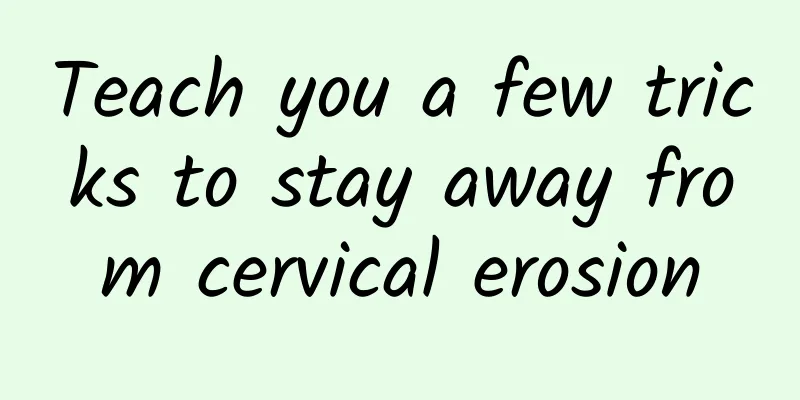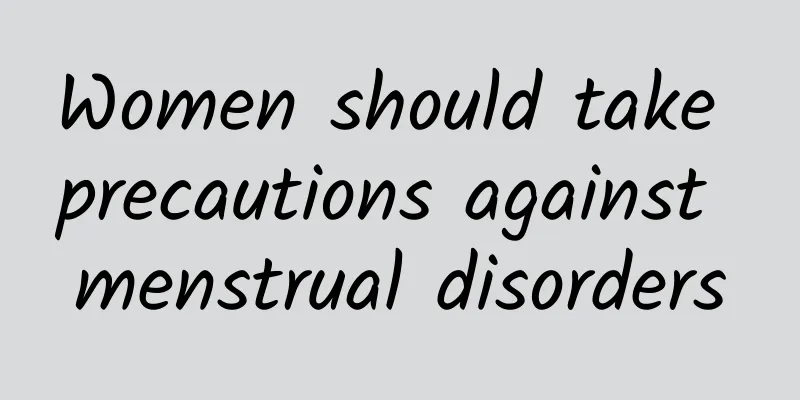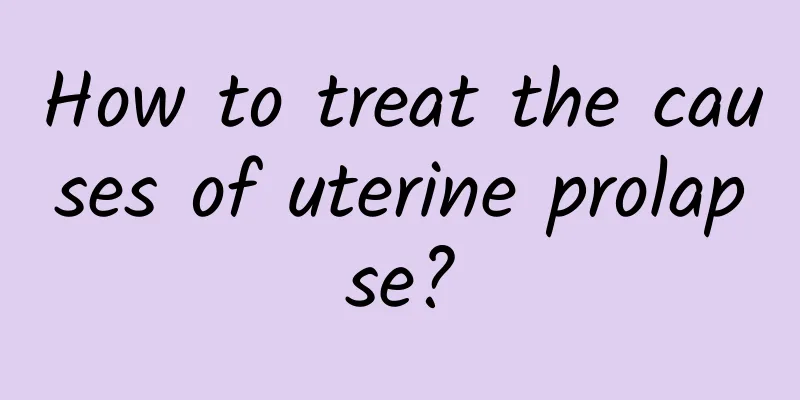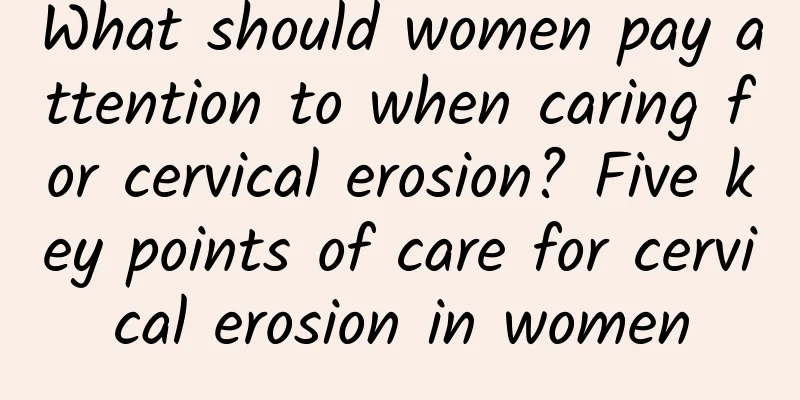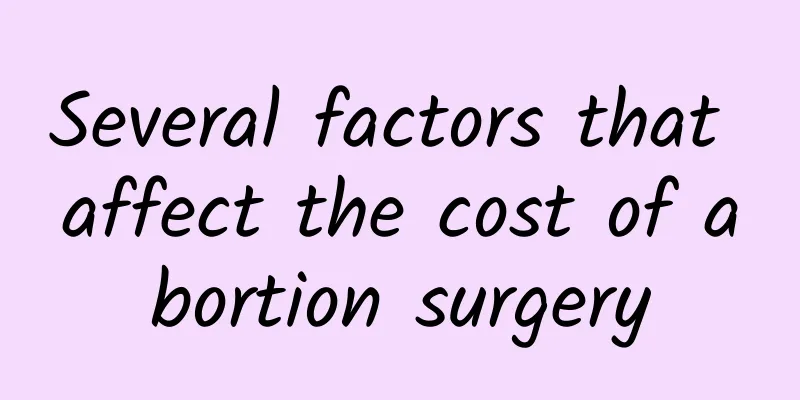What should I do if I have uterine fibroids? Can uterine fibroids really be cured?
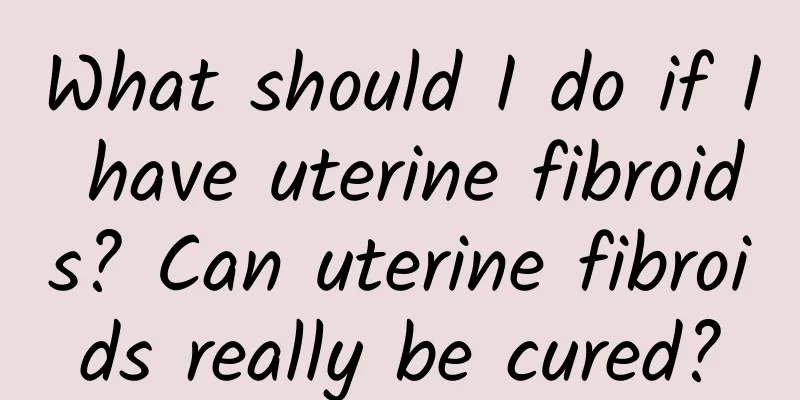
|
Uterine fibroids are the most common benign tumors in the female reproductive organs, endangering the physical and mental health of most women. What should you do if you have uterine fibroids? Can uterine fibroids be cured? Patients with uterine fibroids approaching menopause can temporarily stop treatment, mainly for observation and reexamination. If the fibroids grow larger or symptoms appear, surgical treatment should be considered. Generally speaking, the standard for surgical treatment is that the fibroids (together with the uterus) reach the size of a uterus of a two-and-a-half-month pregnancy, or even if it is not this size, but the menstruation is heavy, drug treatment is ineffective and leads to anemia, or degeneration should also be considered for surgery. Eliminate the malignant changes of fibroids and treat them actively as soon as possible. Uterine fibroids should not be taken lightly. They can cause excessive blood loss, damage kidney function, infertility, and miscarriage. If fibroids are not treated for a long time, they will worsen into cancer and take away life. Therefore, if you know about fibroids, you should not take them lightly. If you have any physical discomfort, you should not delay it too much. You should check and treat them as soon as possible. In addition, surgical treatment can also be chosen for the treatment of uterine fibroids: there are a variety of traditional surgical methods for uterine fibroids, including total hysterectomy, subhysterectomy, myomectomy, uterine artery embolization, major laparotomy, minimally invasive hysteroscopy and interventional embolization. These methods have their own advantages and disadvantages, and the appropriate method should be selected according to the specific situation of the patient. Although some uterine fibroids have a great impact on women, they can generally be completely cured after clinical targeted treatment. However, the treatment method should be comprehensively considered based on the size, location, symptoms, patient age and fertility requirements of the fibroids. In addition to following the doctor's instructions to treat uterine fibroids, the following drugs can also be used to treat uterine fibroids: Guizhi Fuling Capsule: It is processed from five kinds of Chinese medicine, Guizhi, Fuling, Mudanpi, Taoren, and Mudan, and is clinically used for gynecological endometriosis, chronic pelvic inflammatory disease, uterine fibroids, dysmenorrhea, amenorrhea, and ovarian cysts. Elimination Safety Capsule: It mainly promotes blood circulation, removes blood stasis, and softens and disperses nodules. It is used for breast addiction, mammary lobular hyperplasia, ovarian cysts, and uterine fibroids caused by qi stagnation and blood stasis. See the above symptoms. Hongjin Elimination Tablets: It mainly soothes liver qi, promotes blood circulation, eliminates blood stasis, and eliminates swelling and pain. It is used for breast hyperplasia, uterine fibroids, and ovarian cysts. |
>>: Why do infertile women suffer from uterine fibroids? How to treat uterine fibroids
Recommend
What are the drugs for treating uterine fibroids?
The treatment of uterine fibroids is usually surg...
Analysis of the causes of postpartum vaginitis
At present, many women are infected with vaginiti...
How to protect the fetus in case of habitual miscarriage? There are 6 ways to do it
For women who have had habitual miscarriages, the...
"Liver wrapped in oil" special medicine! Weight loss + health management
Fatty liver is not a disease, but it is a health ...
Your baby has no strength and is slow in learning to walk because he doesn’t eat salt? How much salt can you eat in a day? Comparison of sodium content between vermicelli and fried noodles
The baby's growth cannot be missed. Most peop...
What are the causes of pelvic effusion?
Pelvic effusion is a disease unique to women, whi...
What is the nature of uterine fibroid degeneration? What does uterine fibroid degeneration mean?
What is the nature of uterine fibroid degeneratio...
Do you know the types of cervical erosion?
Do you know the types of cervical erosion? Cervic...
The obvious pain after abortion should not be underestimated
Artificial abortion is a means of artificially in...
What foods can help the recovery of uterine fluid accumulation?
Uterine effusion is a type of gynecological disea...
A Chongqing woman was diagnosed with advanced cervical cancer without any pain or itching. The reason was that she made 3 mistakes
In the bustling mountain city of Chongqing, Ms. L...
Does cervical erosion during pregnancy cause brown discharge? There are two things to note about cervical erosion during pregnancy.
Everyone should know that under normal circumstan...
Why do women have abnormal leucorrhea and pain in their lower abdomen and waist?
The belly usually refers to the lower abdomen. If...
How long do people with Bartholinitis usually live?
How long can patients with Bartholinitis live? Ex...
Is it because women have dark private parts that they are "experienced"? Don't be ridiculous! I'll tell you the truth all at once
Some time ago, a patient of mine came to me myste...
